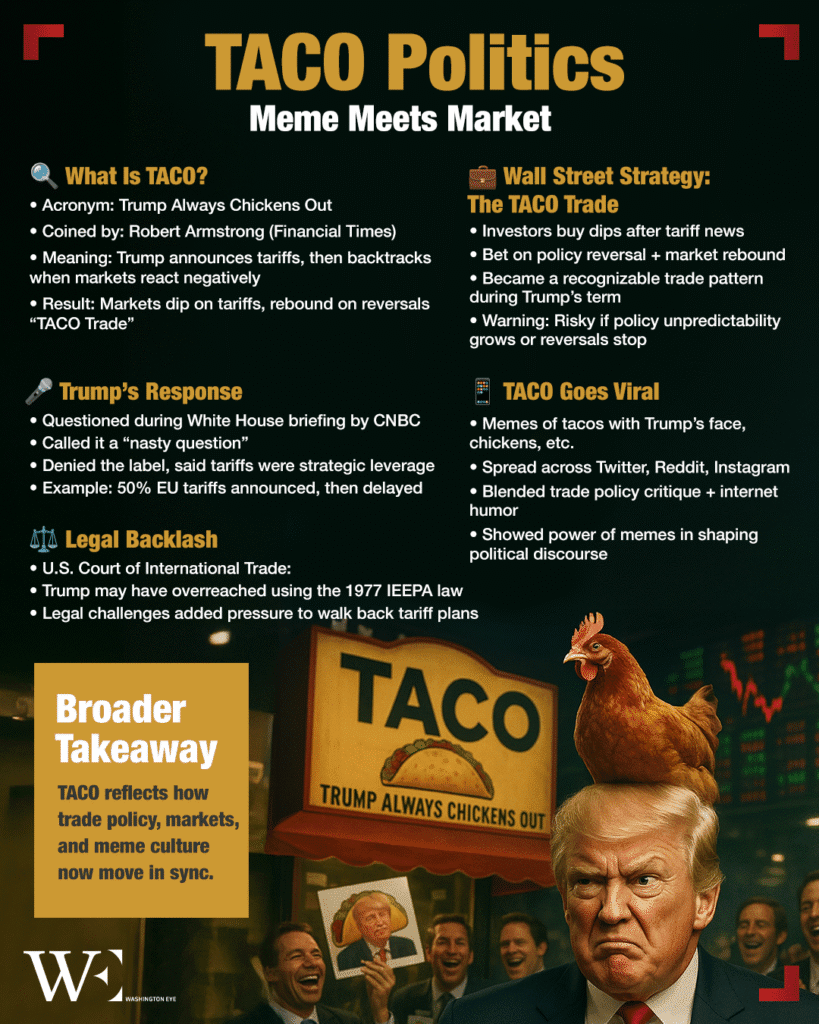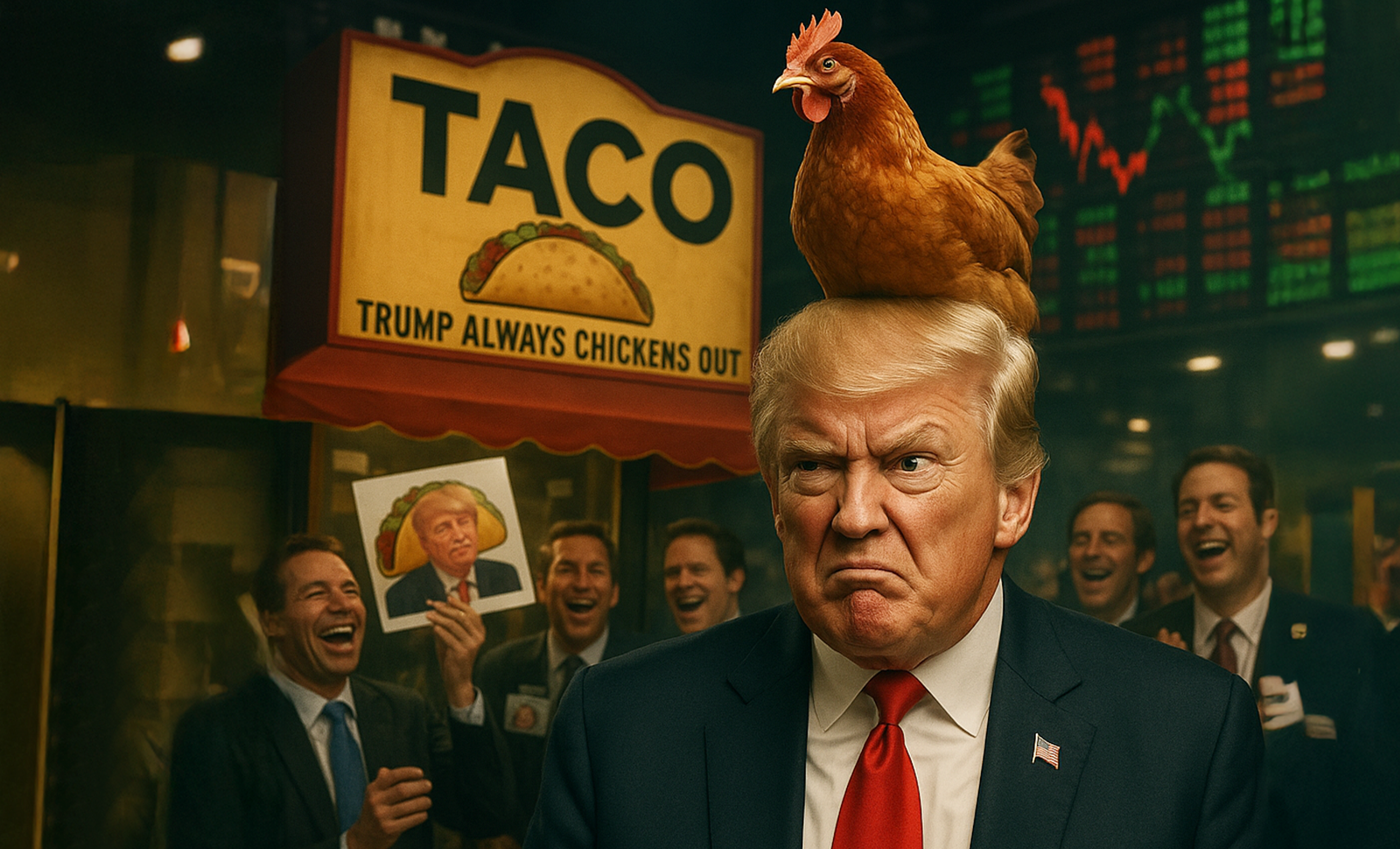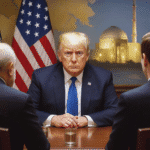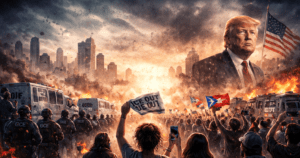Financial Times columnist Robert Armstrong introduced a term that would soon transcend financial circles: “TACO”, an acronym for “Trump Always Chickens Out”. This phrase encapsulated a pattern observed in President Donald Trump’s trade policies—initially announcing aggressive tariffs, only to later retract or delay them in response to market volatility. Armstrong noted that the administration “does not have a very high tolerance for market and economic pressure and will be quick to back off when tariffs cause pain”.
The term gained traction as investors began to anticipate these policy reversals, developing strategies to capitalize on market dips following tariff announcements, with the expectation of rebounds when policies were softened. This approach, dubbed the “TACO trade,” became a notable trend on Wall Street.
Presidential Pushback: Trump’s Reaction to the TACO Label
The TACO acronym entered the political spotlight during a White House press briefing when CNBC reporter Megan Cassella questioned President Trump about the term. Visibly agitated, Trump dismissed the characterization, stating, “Oh, I chicken out? Isn’t that nice? I’ve never heard that” and labeled the inquiry a “nasty question”.
Trump defended his tariff strategies as effective negotiation tactics, citing instances where initial high tariffs led to more favorable trade discussions. For example, after announcing a 50% tariff on European Union goods, he later postponed its implementation, attributing the delay to ongoing negotiations.
The Memeification of Trade Policy: TACO Goes Viral
Following Trump’s response, the TACO term exploded across social media platforms. Memes featuring tacos adorned with Trump’s face and images of chickens perched on his head proliferated, blending political critique with internet humor. The viral nature of these memes underscored the intersection of financial markets, political discourse, and digital culture.
The widespread adoption of the TACO meme highlights how internet culture can amplify political narratives, turning policy critiques into shareable content that resonates with a broad audience.
Market Implications: The TACO Trade as an Investment Strategy
Beyond its meme status, the TACO concept influenced investor behavior. Market participants began to view Trump’s tariff announcements as opportunities for strategic investments. The pattern of markets dipping on tariff news and rebounding on policy reversals allowed traders to “buy the dip”, anticipating recoveries as the administration adjusted its stance.
However, reliance on this pattern carries risks. Analysts warn that if the administration’s policies become unpredictable or if trade tensions escalate without resolution, the strategy could backfire, leading to market instability and potential economic downturns.
Legal Challenges and Policy Repercussions
The administration’s tariff policies have also faced legal scrutiny. A three-judge panel of the U.S. Court of International Trade ruled that Trump overstepped his authority by invoking the 1977 International Emergency Economic Powers Act to justify sweeping tariffs, casting doubt on the legality of these measures.
These legal challenges, coupled with market reactions, suggest that the administration’s approach to trade policy may have unintended consequences, both domestically and internationally.
A Final Note: The TACO Phenomenon as a Reflection of Modern Political Dynamics
The emergence of the TACO acronym and its subsequent viral spread illustrate the complex interplay between political decision-making, market reactions, and digital culture. What began as a financial analyst’s observation evolved into a widespread meme, influencing investor behavior and prompting presidential rebuttals.
This phenomenon underscores how modern political narratives can be shaped and disseminated through unconventional channels, reflecting broader trends in how information is consumed and acted upon in the digital age.

















